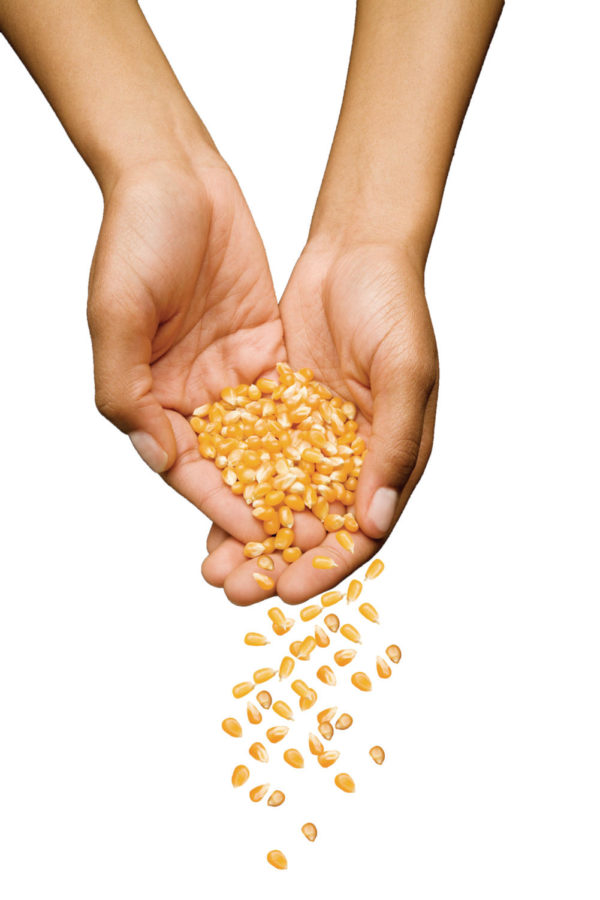Watson: New technology breeds new concerns
February 1, 2012
American farmers throughout the nation are weeks away from a potentially critical situation. The agricultural engineering company Syngenta recently released a ground-shaking new seed corn trait, Viptera. Encompassing many of the best genetics available to take the form of a super-hybrid, the Viptera (3111) trait has the potential to revolutionize agriculture on a global spectrum, capable of saving millions of lives through increased yields. However, because it is a genetically modified organism, there are many negative connotations associated with it, which has led to it being barred in China and causing turmoil in the American agricultural community.
New technology breeds new concerns. A GMO is any organism whose genetic material has been altered using genetic engineering to better the plant in some facet, whether by increasing yields, providing more drought resistance or giving protection from insects. There has been much speculation about the long-term safety of GMOs, and their potential threat to the environment.
When a newly developed trait is released by an agri-engineering company, it must pass a rigorous set of tests administered by the importing country to ensure its safety. Before the trait even makes its way to foreign shores, it must adhere to thorough testing from not only the U.S. Department of Agriculture, but also the Environmental Protection Agency and Federal Drug Administration. It is estimated that somewhere between 80 and 90 percent of all American crops are GMO hybrids.
Viptera is engineered to protect itself from attacks of various insects and worms. Just as many tropical frogs protect themselves by poisoning their predators attempting to eat them, if any malicious predator attempts to have its way with the plant, it will take one bite, whether from the roots, leaves or silks, and die almost instantly. To a farmer, spraying insecticides is a necessary part of growing a crop; without protection, the entire crop is in serious jeopardy. Viptera can eliminate the threat of insect infestation altogether, thus eliminating the need for potentially hazardous chemicals. However, not everyone is on board.
In the spring of 2011, Viptera proudly brandished a stamp of deregulation by the American government, allowing it to be commercially sold, produced and exported to all major importing companies who also approved the trait, such as Australia, Brazil, Canada, Japan, Mexico, New Zealand, the Philippines, Korea, Taiwan and most countries of the European Union. The crops were planted and the growing season came and went and farmers were seeing higher yields with their Viptera corn than ever before.
However, come August, China placed a massive order for imported American corn, earning a “major importer” status, allowing it to conduct its own tests on the corn it imports. China has not yet approved the Viptera trait, so any corn exported to China cannot contain the Viptera trait, even in trace amounts. This is a serious problem for American farmers and grain merchandisers alike. It has caused a split between many of the major grain exporters.
Grain merchandisers are left with a serious dilemma — whether to accept all corn, “contaminated” or not, and hope for the best and risk losing a huge account in China, or temporarily not accepting Viptera. Bunge is one of those grain merchandising companies who have barred Viptera corn. As any company, Bunge is in business to make money and look after its investors. When China announced it wouldn’t accept corn contaminated with Viptera, Bunge, Consolidated Grain and Barge (CGB) and other companies responded with similar objections.
Though China declared American companies would have the final decision on Viptera by the end of March, many farmers have contracts to be delivered for a time before then, leaving farmers scratching their heads, asking, “Now what?”
Syngenta (owner of Agrisure), announced to farmers that if they are having problems finding a place for their grain, Syngenta will help them find a buyer. Many farmers in the Midwest have found serenity in hauling to ethanol plants who indiscriminately accept all corns. Still, many are not as fortunate and are forced to wait and see if they have to haul their corn across the state for acceptance or if they can deliver their corn on time and for the price it deserves.
Experts suggest China will probably accept the trait, as the American government and others couldn’t find a problem with it. But the what-if question still lingers for those with their necks on the chopping block. The farmers of America will continue to wait with bated breaths for their champion new hybrid to receive Chinese approval.

















